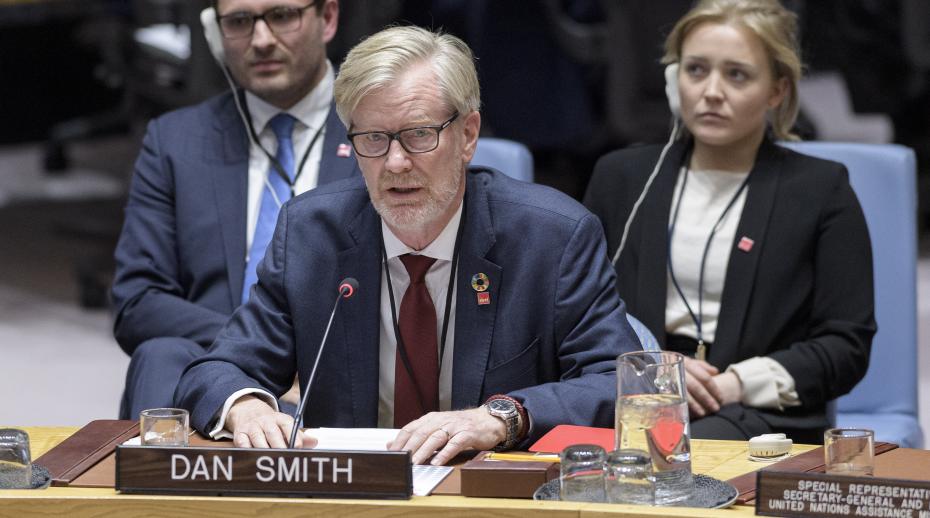
(New York, 24 February 2020) Climate-related security risks are significantly transforming the way in which multilateral peacebuilding is taking place. Today, Dan Smith, Director of the Stockholm International Peace Research Institute (SIPRI), briefed the United Nations Security Council on the particular obstacles climate change is creating for the United Nations Assistance Mission in Somalia (UNSOM).
Speaking at the UN Security Council on the invitation of the Belgian Council Presidency, Dan Smith said that ‘Floods and droughts in Somalia exacerbate conflict and displacement; thereby UNSOM’s efforts and the work of the Federal Government of Somalia (FSG) in building peace risk being undermined. The pressure of weather events is part of what challenges the current power-sharing agreement, providing recruitment opportunities for the al-Shabab terrorist organization among others.’
Smith continued, ‘extreme weather events create water and food insecurity that give al-Shabab the opportunity to act as service providers. This allows their political narrative to gain support and decreases trust in the peacebuilding efforts of the FSG and the UN.’
The need to strengthen resilience to climate-related security risks
The Security Council briefing was based on SIPRI’s research, including an in-depth assessment of UNSOM. The study found that UNSOM has responded to the growing impact of climate-related security risks through better coordination between different UN agencies and the appointment of an Environmental Security Advisor.
The research concluded that the lessons the wider UN system can learn from Somalia are threefold. First, climate-risk assessment information should be synthesized across domains. Second, the training of peacebuilding personnel needs to specifically include more on climate sensitivity. Third, funding streams need to be systematically adjusted to support more integrated responses to climate-related security risks and prioritize programs that promote climate resilience.
The future of peacebuilding
‘The case of Somalia shows us the future of peacebuilding. There are practical steps decision makers can take to address the negative impact of today’s environmental crises to improve tomorrow’s prospects for peace and security. UNSOM and the FSG have both made important steps in this direction; there is room for more,’ Smith concluded.
For editors
- Read the complete text of Dan Smith's briefing to the UN Security Council.
- The SIPRI Policy Paper ‘Climate-related security risks and peacebuilding in Somalia’ by Karolina Eklöw and Dr Florian Krampe is available to download here: http://bit.ly/35WO74Z
- Further reading: Climate change challenges the future success of peacebuilding—shows new SIPRI study on Somalia
Media contacts
For information and interview requests contact SIPRI Communications Officer Alexandra Manolache (alexandra.manolache@sipri.org, +46 766 286 133) or SIPRI Communications Director Stephanie Blenckner (blenckner@sipri.org, +46 8 655 97 47).